KOF Bulletin
How are Swiss companies doing? What is the situation on the labour market? How is the international economy developing? And what is the latest news from KOF research? The monthly KOF Bulletin answered these questions and more until October 2024, when it was replaced by the ‘KOF Insights’ magazine in 2025.
Latest Articles
Global economic engine not yet up to speed

Growth in the eurozone remains below average, while the US economy is likely to lose momentum owing to an increasing slowdown in the labour market. No significant economic recovery is currently expected in China either.
Technology transfer: a key to explaining Switzerland’s innovative prowess

The transfer of knowledge and technology between universities and the private sector in Switzerland works relatively well. This is one of the key findings of the knowledge and technology transfer monitoring report compiled by KOF in collaboration with ZEW in Mannheim on behalf of the State Secretariat for Education, Research and Innovation (SERI). However, there are also challenges and a need for action.
KOF Business Situation Indicator falling back

The KOF Business Situation Indicator fell back in September (see chart G 13). This meant that it could not quite maintain the higher levels it had attained during the summer months of July and August. However, firms’ expectations about developments over the next six months continue to improve. The Swiss economy is on a bumpy road to recovery.
The Swiss labour market is doing fairly well

Employment is continuing to grow, while unemployment is rising slightly. KOF expects that the phase of declining real wages will come to an end this year.
“Harris is more predictable than Trump”

In this interview, KOF economists Heiner Mikosch and Maurizio Daniele analyse the economic policy differences between Kamala Harris and Donald Trump and provide an outlook for economic developments in the United States.
KOF Business Situation Indicator rises again

The KOF Business Situation brightened for the second time in a row in August (see chart G 2). The improvement is becoming more widespread this month. Firms are also more confident about future business activity than before. The Swiss economy staged a modest recovery in the summer.
Can STEM events attract more pupils to technical degree programmes?

A study by KOF at ETH Zurich shows that participation in STEM events increases the likelihood that pupils will later study such a subject. In particular, events at which a larger proportion of female experts present have a strong impact on the choice of subject. However, the positive effect of additional female speakers is not limited to schoolgirls. Pupils are also more likely to choose STEM subjects after attending events featuring a higher proportion of female experts.
When is state intervention needed?

Automatic stabilisers are normally sufficient to dampen fluctuations in the economic cycle. If the economy slides into a severe recession, however, state intervention is necessary.
“Switzerland has the potential to develop into a global AI hub”

Hans Gersbach, KOF’s co-director, talks about the potential and risks posed by artificial intelligence and how Switzerland can position itself as a technology hub through smart regulation.
Many firms plan to invest more; environmental projects are being scaled back

The semi-annual KOF Investment Survey reveals major sectoral variations in the investment expectations of Swiss firms. Investment planned for the current year is increasing only in the service sector but is stagnating in industry and even decreasing in construction. This decline is being accompanied by lower-risk investment projects and a reduced focus on environmental protection measures.
“Monetary policy in the eurozone will remain restrictive for the time being”

KOF economists Alexander Rathke and Alexis Perakis analyse the interest-rate decisions taken in the eurozone, the United States and Switzerland. They also comment on the political risks posed by the snap elections called in France.
Wealth tax: a minimum tax on the rich

Despite having very high incomes, the rich and super-rich often pay much lower income tax in percentage terms than middle-income households. In Switzerland, too, the income-tax burden on billionaires is often significantly lower than that on the rest of taxpayers thanks to the privileges enjoyed by business owners. However, wealth tax makes a significant difference here by stepping into the breach when income tax is no longer effective.
Why do households perceive inflation differently than firms and forecasting organisations?
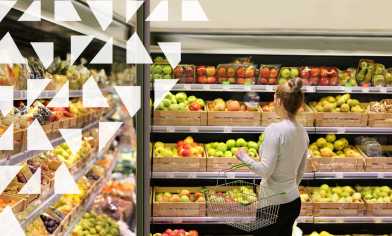
Swiss households have been asked about their numerical inflation expectations as part of the SECO consumer sentiment surveys conducted since the beginning of 2023. Initial results show that households’ inflation expectations are higher than those of forecasting organisations and firms as well as the official inflation rates. Despite these distortions, the survey data provides valuable information on factors such as the anchoring of inflation expectations.
KOF Business Situation Indicator suffers a setback

The KOF Business Situation Indicator for the Swiss private sector fell in June after showing an improvement in the previous month (see chart G 6). Firms are slightly less confident about developments over the next six months. A radical economic turnaround has not yet been achieved.
Why the Olympics and the European Football Championships will increase Swiss GDP

KOF is forecasting that the Swiss economy will grow by 1.6 per cent this year. A quarter of this increase will be due to the European Football Championships being held in Germany and the Olympic Games in Paris. KOF economist Alexander Rathke explains the background to this effect.
"Our goal is a symbiosis of economic research and data science"

KOF economist Samad Sarferaz talks about the methodological refinement of KOF’s economic forecasts and their underlying models. He also gives an up-to-date assessment of the Swiss economy, inflation and monetary policy.
KOF Business Situation Indicator continues to rise

The KOF Business Situation Indicator for the Swiss private sector rose very slightly in May. It did not fall again in the previous month and remained stable (see chart G 4). In May, firms were more confident than before about business activity over the next six months. There are increasing signs that the Swiss economy may have bottomed out.
COVID-19 fiscal measures: merely announcing them has an effect

Switzerland’s COVID-19 policy was federal in nature, with the cantons taking specific support measures to limit the economic slump caused by the various challenges. Recent unpublished analysis of these measures suggests that they managed to stabilise business expectations in terms of demand, production, employment and the general outlook as soon as they were announced.
“Switzerland is under pressure to act”

KOF Director Jan-Egbert Sturm talks about Switzerland’s relationship with the European Union and analyses the opportunities and risks posed by the new negotiations for the bilateral agreements.
KOF Business Tendency Surveys: challenges facing the Swiss economy are diminishing

The KOF Business Situation Indicator for the Swiss private sector, which is calculated on the basis of the KOF Business Tendency Surveys, rose modestly in April (see chart G 7). The situation in the manufacturing sector eased, while it deteriorated slightly in the construction industry. Companies’ inflation forecasts are falling and private consumption could provide stimulus to the Swiss economy.
Elections cause fiscal waste in weak and strong democracies alike

Once politicians enter office, they strongly prefer to stay there. Politicians in democracies may therefore be tempted to engage in wasteful spending during elections to convince voters of their economic merits. Such fiscal manipulation is traditionally linked to uninformed voter bases in less developed democracies. A recent study by KOF researchers, however, reveals that fiscal manipulation is more widespread and complex.
The EU in crisis: taking stock of the economy

There is currently a lack of economic growth in the European Union. In addition, demographic change and unresolved structural problems are slowing economic activity. Once the European elections have been held in June, the new EU government will face major challenges. KOF’s international economic experts have analysed the situation in the three largest EU member states Germany, France and Italy.
KOF Business Situation Indicator on the decline again

The KOF Business Situation Indicator for the Swiss private sector fell again in March after initially not continuing its downward trend in the previous month (see chart G 8). Firms’ expectations about their business activities over the next six months are slightly more confident than they were in the previous month. Conditions in the Swiss economy remain challenging.
How to Regulate Stablecoins

Cryptocurrency markets are rallying to new highs. Simultaneously, another type of cryptoasset is gaining relevance: stablecoins. Unlike Bitcoin & Co, stablecoins aim to maintain a steady value against a national currency. They facilitate trade on cryptoexchanges, underpin the DeFi ecosystem and promise to be a stable store of value. Unregulated, however, they come with significant risks. KOF economists Hugo van Buggenum, Hans Gersbach and Sebastian Zelzner discuss regulatory measures.
How relevant are energy prices really for firms?

The sharp rise in energy prices since 2022 has led to much debate. But how important are energy prices really for companies? And through which channels are companies exposed to energy prices? To answer this question, researchers from KOF, EPFL and the University of Lausanne conducted a company survey funded by the Enterprise for Society (E4S) Foundation and the MTEC Foundation.
Global economic growth remains weak for the time being

According to the KOF Economic Forecast, the global economy will not pick up speed again until the second half of the year. The loss of household purchasing power caused by the high inflation rates of the past two years will dampen private consumption in the short term. In addition, the more challenging funding conditions and the high level of political uncertainty are weighing on investment momentum in many countries.
“The welfare state is not an outdated model”

Michael Graff, Co-Head of the Research Division Macroeconomic Forecasting and Data Science, explains his views on the successful initiative for a 13th monthly AHV pension payment and the future of the welfare state in an age of demographic change. He also reveals what plans he has for his retirement.
Investment on the rise, but not in all sectors

The results of the semi-annual KOF Investment Survey point to a nominal increase in investment of 8.2 per cent in 2024, driven by technological progress and supported by the service sector. By contrast, industry and construction are reporting a slowdown or even a decline in their investment plans owing to funding shortages and a downturn in demand.
Artificial intelligence: how networks are controlling firms’ AI expertise

The latest KOF research shows that AI technology is being introduced in relatively closed groups, similar to exclusive clubs. This could lead to a concentration of relevant AI know-how, making it more difficult for this key technology to spread and increasing dependence on a small number of technology providers. This in turn can make the economic performance of different regions less equal. Policymakers should push to overcome excessive cluster effects.
The power of central bank communication

A recent study by KOF analyses the impact that central bank communication has on financial markets, which are a key transmission channel for monetary policy. The findings show that monetary policy speeches are an important source of information for the formation of expectations in financial markets. The findings also suggest that volatility in financial markets increases when a central bank communicates too complexly.
Business situation virtually unchanged

The KOF Business Situation Indicator for the Swiss private sector rose slightly in February (see chart G11), following two consecutive months of modest declines. Overall, business activity at Swiss companies has not changed significantly since October 2023. The sharp downward trend of the first three quarters of 2023 has been broken for the time being. Although the Swiss economy has recovered, there is a lack of momentum.
Between market power and labour rights: the impact of the seasonal worker statute on immigrants’ wages

Switzerland’s seasonal worker statute, which was abolished in 2002, tied residence permits to employers. According to the monopsony theory, such regulation gives employers greater bargaining power in wage-setting and could depress wages. This article analyses this hypothesis and suggests that immigrants’ social and economic rights – strengthened by the free movement of people – may have helped to reduce wage differentials.
How can gender-specific differences in higher education be overcome?

Women are still under-represented in managerial positions in the academic sector. A programme for female professors in Germany aims to change this. An ongoing study involving KOF is investigating the success of this support programme.
The free movement of people has had no impact on the number of apprenticeships

Has the free movement of people had a negative impact on Swiss firms’ willingness to train apprentices? A new study shows that the number of apprenticeships did not fall during the first few years following the opening of the country’s border. However, the reasons why firms train apprentices has changed because it has become easier and cheaper for them to recruit suitable workers externally.
The weakness of the global economy persists

Restrictive monetary policy, falling but still high inflation and multiple uncertainties will continue to slow the global economy this year. According to the KOF Economic Forecast, worldwide business activity will not pick up again until 2025.
Business situation virtually stable at the end of the year

The KOF Business Situation Indicator hardly changed in December (see chart G13). Its rapid decline, which lasted from the beginning of 2023 into October, has slowed for the time being. The Swiss economy is currently sluggish.
Falling wealth taxes contributing to rising wealth concentration

As in many other countries, wealth concentration in Switzerland has increased in recent decades and remains high. At the same time, taxes have regularly been reduced over the last 50 years. Wealth tax cuts explain around a quarter of the observed growth in wealth concentration. This means that there are other key drivers of wealth inequality besides taxes.
The mental health of the Swiss population during the pandemic

How did the Swiss fare during the first two waves of the COVID-19 pandemic? Using data from Dargebotene Hand and Swisscom, analysis conducted by Marc Anderes and Stefan Pichler shows that calls to the Dargebotene Hand helpline increased significantly just after the outbreak of the pandemic.
“The battle against inflation has not yet been won”

Alexis Perakis, monetary policy expert at KOF, talks in this interview about his predictions for inflation, interest rates and the Swiss franc exchange rate this year. He considers the current debate about interest-rate cuts to be premature.
Supported democracy: reinventing direct democracy, AI and voting twice

There are many concerns about how artificial intelligence (AI) might impact communication and democratic processes adversely, as opportunities to the production of fake news are becoming more and more sophisticated. Yet AI also offers new ways to organise democracy. It could even enable direct democracy to be reinvented. Hans Gersbach (KOF) and César Martinelli (George Mason University) have been exploring these possibilities and they present one of its core ideas in this article.
“ChatGPT may not be the greatest poet and thinker of our time, but it is an increasingly important source of inspiration”

Johannes Dahlke, Assistant Professor of Digital Innovation and Entrepreneurship at the University of Twente, KOF Research Fellow and former member of the Innovation Economics Section, talks in this interview about the potential of artificial intelligence and explains how technological change will affect the labour market and individual professions.
KOF Business Situation Indicator continues to fall

The KOF Business Situation Indicator for the Swiss private sector continued to deteriorate in November (see graphic G 3). This was the third monthly decline in a row. The business outlook for the next six months remains virtually unchanged at a subdued level. Economic activity in Switzerland remains sluggish.
International digital technology cycles and local economic performance

The development of new digital technologies is increasingly dependent on international knowledge. In the recent past this trend has led to political concerns about dependence on foreign knowledge suppliers. A study by KOF, which uses a global patent dataset from 1980 to 2015, emphasises the importance of international knowledge networks for technological progress.
KOF’s Business Tendency Surveys: Swiss economy lacking stimulus

The KOF Business Situation Indicator for the Swiss private sector, which is calculated from KOF’s Business Tendency Surveys, fell in October for the second month in a row (see chart G5). Following a modest decline in the previous month, business activity cooled significantly in October. By contrast, companies’ business expectations for the coming six months are almost unchanged and more or less average on a medium-term comparison.
Demographic change: what are the implications for inflation?

Switzerland’s population is ageing. This article attempts to qualitatively assess the impact that this trend has on inflation. Its immediate effects are likely to be moderate. At the same time, there are risks: inflation could turn out to be higher but, surprisingly, it could also be lower.
Media formats and their role in the perception of monetary policy

In today’s ever-changing global economy, clear and effective communication by central banks is crucial to build trust in their policies and manage public expectations. A new study by researchers at KOF and ETH uses an experiment to investigate how central banks influence inflation expectations through different media formats and which communication formats are most effective.
How monetary policy can be deciphered using language analysis

Central banks shape global financial markets through their carefully crafted speeches. Words often trigger immediate market reactions and provide a more timely signal than many regularly updated economic indicators. When compiling its analysis, KOF uses natural language processing to decode indicators from central bank transcripts that make it possible to replicate and predict market movements in a timely manner.
Gloomy outlook for the global economy

The international economy has slowed. Above all, the effects of China’s weakness and of restrictive monetary policy are weighing on the global economy.
Exports proving robust

Swiss foreign trade is holding up well despite global turbulence and the current weakness of major trading partners such as China and Germany.
KOF Business Situation Indicator slightly lower

The KOF Business Situation Indicator for the Swiss private sector retreated very slightly in September after flatlining in the previous month (see chart G 8). Its decline was modest, however, and in return companies are slightly more confident about their future business than they were before. The Swiss economy is not showing any fundamental signs of change at the moment.
“China is facing major challenges that go beyond its real-estate crisis”

KOF economists Vera Eichenauer and Heiner Mikosch talk in an interview about the Chinese economy’s weaknesses and their impact on the Swiss economy.
KOF Business Situation unchanged

The KOF Business Situation Indicator for the Swiss private sector pauses in August (see Chart G 5). After a sharp decline in the previous month, it does not fall further. Expectations for further business development remain rather subdued. The Swiss economy is developing sluggishly.
Long-term experience of immigration weakens nationalist parties

In many countries, support for xenophobic views varies considerably from region to region. It is often strongest in areas without a large proportion of foreigners. A new study shows that a lack of local experience with immigration is partly responsible for this. Regions that have had more experience with immigration and integration in the past exhibit a much weaker nationalist backlash against new waves of immigration.
Labour market restrictions on refugees
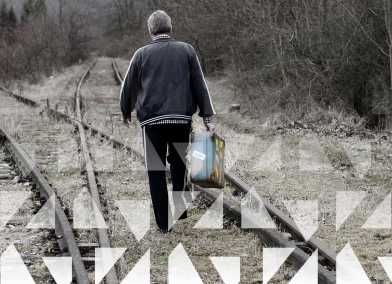
Restricting employment opportunities for refugees reduces their likelihood of working and earning in the long term. This imposes high costs on refugees and host societies.
“There are winners and losers of immigration”

KOF economist Andreas Beerli explains in an interview why immigration is desirable from an economic point of view and in which areas Switzerland still needs to improve.
Global economic outlook remains weak

Although the much-feared energy crisis has failed to materialise, persistently high inflation, rising interest rates and geopolitical conflicts are weighing on the global economy.
New incentives for antibiotics research and development

An estimated 33,000 people die in the European Union every year as a result of being infected with antibiotic-resistant germs. The number of deaths associated with antimicrobial resistance worldwide is estimated to be more than 5 million per year. New antibiotics urgently need to be developed, but this is often not profitable for companies. This article discusses a dynamic funding model that would make it more attractive for firms to develop new antibiotics.
Significant increase in company bankruptcies

A significant increase in company bankruptcies has been evident in Switzerland since autumn 2022, while business start-ups have been declining sharply for several months. The following article examines this trend in detail and gives possible reasons for this increase.
Climate risks and investment: how Swiss companies are dealing with climate change

Although many Swiss firms see their business activities as being exposed to physical climate risks, they nevertheless view ecological change predominantly as an opportunity rather than a risk. Investment aimed at combatting climate change is accelerating and, in comparison with the EU, Switzerland is one of its pioneers. Having added a new block of questions to its investment survey, KOF can shed light on the economic impact of climate change from the perspective of Swiss companies.
KOF Business Situation Indicator edges up

The KOF Business Situation Indicator for the Swiss private sector rose slightly in June, averting a third consecutive decline (see chart G 16). However, this modest improvement does not yet indicate that the Swiss economy has received a significant boost. Business expectations about developments in the near future emphasised this view; they hardly changed compared with the previous month and were average overall.
Business situation deteriorating

The KOF Business Situation Indicator fell across the board in May. This means that the business situation is worsening for the second month in a row, and it is significantly less encouraging than it was in May last year (see chart G 10). Economic activity in Switzerland is currently sluggish.
How dependent is Swiss industry on China?

One-fifth of Swiss industrial companies are moderately to heavily reliant on critical inputs from China. Their greatest dependence is in the electronics sector, followed by the pharmaceuticals and chemicals sectors. Just under one-fifth of firms are unable to assess their own reliance. The measures already taken or those that are planned reveal that production and procurement are being redirected towards Europe and Switzerland. These are among the findings of a KOF company survey.
“The pension system is one of the great achievements of the welfare state”

Michael Graff, head of the Macroeconomic Forecasting research division at KOF, explains the advantages and disadvantages of the Swiss pension system and why pension reforms are so difficult to implement.
“Artificial intelligence has the potential to revolutionise economic research”: ten questions for ChatGPT

This article is a collaboration between man and machine. We conducted an interview with the ChatGPT voice software on economics, business cycle research and politics. KOF innovation researcher Mathias Beck and KOF co-director Hans Gersbach rank the quality of ChatGPT’s responses and its potential below.
KOF Business Tendency Surveys: Swiss economy faltering

The KOF Business Situation Indicator for the Swiss private sector, which is calculated from the KOF Business Tendency Surveys, fell in April after barely moving in the previous month (see G 3). Business is thus still performing better than it did in the autumn of last year but is no longer as buoyant as it was in January.
Wage increases as a response to the shortage of skilled workers
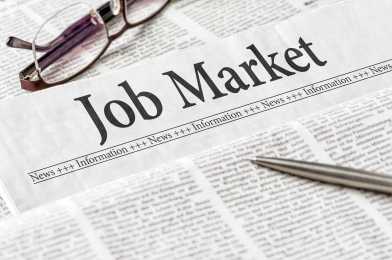
What factors influence wage levels in the various sectors? This analysis shows that, in particular, the extent of the shortage of skilled workers in an industry is positively correlated with the wage growth expected by companies.
Bank regulation: the many pitfalls of bail-in bonds
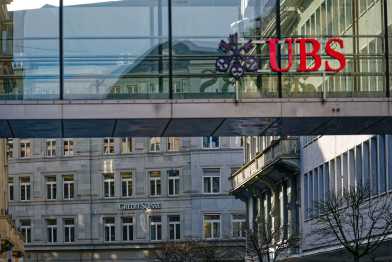
At first glance, ‘bail-in bonds’ are an attractive way of recapitalising banks in distress. In the case of Credit Suisse, however, according to FINMA, loss buffers amounting to over CHF 50 billion were not activated for recapitalisation purposes because no compulsory restructuring was ordered. Bail-in bonds, which can only be written off or converted into equity through state intervention, present a number of pitfalls, which are discussed in this article.
The Swiss construction sector since COVID-19: an interim assessment

There is currently much discussion about developments in the local real-estate and rental housing markets. This article adds to the debate by classifying the Swiss construction sector during the current period of upheaval.
Swiss labour market remains in good shape

2022 will go down in history as an exceptional year for labour markets in Switzerland and many other European countries. KOF is forecasting that employment will increase by 1.5 per cent this year and 1 per cent next year.
Although the outlook for the global economy is brightening, additional risks are emanating from the banking sector

The energy crisis has turned out to be less severe than feared – partly thanks to the mild winter. However, high inflation, rising interest rates and geopolitical risks continue to weigh on the global economy. This situation is compounded by the risk of disruption in the banking sector.
KOF Business Situation Indicator virtually unchanged

The KOF Business Situation Indicator for the Swiss private sector remained almost unchanged in March (see chart G 13). It was primarily the manufacturing sector that presented an obstacle to any improvement. The economy therefore failed to gain any real momentum.
“We are at the end, rather than the beginning, of a banking crisis”

KOF Director Jan-Egbert Sturm explains why the rescue of Credit Suisse was the right thing to do and assesses the macroeconomic consequences of its takeover by UBS.
Why has Switzerland, unlike Germany, not developed a large low-wage sector? An overview

In Switzerland – in contrast to Germany – low wages have managed to keep up surprisingly well with average wages. Research to date cannot conclusively explain the different trends in these two countries. In this article, KOF economist Kristina Schüpbach discusses various theories on this topic. One possible explanation is that Switzerland’s job market is more extensively covered by collective labour agreements than Germany’s.
“Economics is about the question of the good life”

Michael Graff, Head of the Research Division "Macroeconomic Forecasting", explains why inequality should be a key topic in economics and why redistribution and efficiency do not necessarily have to be opposites.
KOF Business Situation Indicator down slightly

The business climate for the Swiss private sector deteriorated somewhat in February. Having risen sharply in January, the Business Situation Indicator could not quite sustain the previous month’s value in February (see chart G 3). Nevertheless, the economic situation in Switzerland in the first few months of this year is significantly more encouraging than it was in the autumn of 2022.
Financial bottlenecks slowing investment growth

Although Swiss companies intend to curb their pace of investment in 2023, this slowdown does not point to a recession. According to the results of the semi-annual KOF Investment Survey, investment growth is likely to slow from a nominal 5.3 per cent last year to 3.9 per cent in the current year. Financial bottlenecks in particular are having a dampening effect on investment expectations.
KOF Business Tendency Surveys: threat of recession this winter is fading

The KOF Business Situation Indicator for the Swiss private sector, which is calculated from the KOF Business Tendency Surveys, rose significantly in January (see chart G11). While firms’ business had deteriorated in the autumn, a clearly positive trend was visible in January. The operating outlook for the coming months is more encouraging than it was before.
Swiss companies investing more in cyber security

The proportion of firms that use various IT security technologies and have appropriate strategies and individuals responsible for cyber security has risen sharply over time. This trend is accompanied by a decrease in the percentage of firms that have security issues. The growing protection of digital infrastructure may therefore pay off in the form of fewer cyber attacks.
Oil price shock scenario: this is how Swiss managers would react

What would a sharp rise in the price of oil mean for Swiss companies? What are the specific ways in which such a shock would be transmitted to their economic activities? And which sectors would be particularly affected? A KOF survey shows that uncertainty and higher costs are the factors that weigh the heaviest because, according to the managers surveyed, they cause sales losses and price increases.
The proportion of R&D-active companies in Switzerland has risen for the first time in 20 years

The research landscape in Switzerland is becoming more diverse again. Smaller firms and companies offering modern services in particular are increasingly conducting research and development (R&D). This innovative business climate is making the Swiss economy more resilient to crises such as COVID-19.
Business situation stabilised at the end of the year

The KOF Business Situation Indicator rose slightly in December, having previously fallen twice in a row (see chart G 15). The recent recovery trend continued, with business activity improving in all sectors surveyed in December. Although the Swiss economy is operating in a challenging environment, it is not in crisis.
How do firms determine their prices?

New survey data provide insights into the price-setting behaviour of Swiss companies. They shed light on price setters’ motives when they are reviewing, forming and adjusting their prices, as well as the reasons why they do not adjust their prices. In particular, they illustrate how prices are set so as to take account of the competing interests between customers and competitors.
Energy crisis and rising cost of living slowing down global economy

In Europe, persistently high inflation and high energy costs are likely to continue to weigh on demand. In the United States, inflation is leading to a loss of purchasing power, while rising interest rates are dampening investment. The outlook for the Chinese economy has also darkened.
“Inflation will remain high by Swiss standards in 2023”
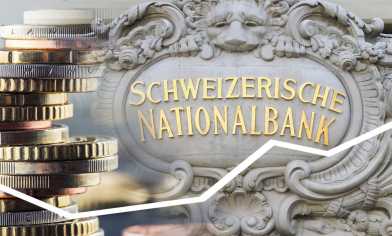
KOF expects interest rates to continue to rise this year in the euro area, the United States and Switzerland. It predicts that inflation will eventually fall but will remain high. The two economists Alexander Rathke and Pascal Seiler explain why in an interview.
Business situation slightly less encouraging than in previous month

The KOF Business Situation Indicator fell in November for the second month in a row (see Chart G 9). Although its decline is slowing, it affected all of the sectors surveyed in November. The Swiss economy is slowing down slightly.
“We expect to see recessions in Germany, France and Italy – but not in Switzerland”

Almost all of Switzerland’s major trading partners are currently grappling with the economic consequences of the Russia-Ukraine war and with self-inflicted problems. In this interview, Heiner Mikosch and Philipp Kronenberg from KOF’s International Forecasts Section analyse the current situation of the global economy
New digital technologies: what role do robots, big data and artificial intelligence play in the Swiss economy?

The spread of new digital technologies throughout the Swiss economy continues to increase. Robots, big data and artificial intelligence are being used not only to make internal processes more efficient, but also to develop and sell new products. This dual function keeps the Swiss economy competitive in the face of strong international competition.
The pharmaceutical industry is Switzerland’s growth engine

The pharmaceutical sector has become the largest industry in Switzerland. Demand for its products is hardly subject to any cyclical fluctuations, and its declining prices have so far been more than compensated for by increases in production volumes. Employment in the sector has grown sharply, and pharmaceutical products contribute significantly to Switzerland’s goods trade surplus. However, the size of this industry also entails risks.
KOF Business Tendency Surveys: The Swiss economy is losing momentum

The KOF Business Situation Indicator for the Swiss private sector fell significantly in October (see chart G 8). Although business remains predominantly encouraging according to the KOF Business Tendency Surveys, the last time the indicator was lower than it is at present was in June 2021.
COVID-19 pandemic, war in Ukraine and appreciation of the Swiss franc: impact on tourism in Switzerland

Much higher energy prices and the threat of recession abroad are depressing sentiment in the tourism industry. However, KOF expects to see growth in overnight stays thanks to the ongoing recovery from the pandemic and the strength of domestic tourism.
A politician’s perfect storm: when disaster relief is politically biased

Politicians often act in a biased manner when allocating public funds. To date, however, it has only been possible to quantify strategic political bias on average. A recent analysis of government disaster relief allocation in response to hurricanes in the United States now shows that the extent of political favouritism varies greatly according to the decision-making situation. The issue is most pronounced for medium intensity storm events.
Vera Eichenauer: “Power is a big issue”

In her working paper entitled ‘Power Shifts, Emigration, and Population Sorting’ co-authored with political scientist Michaël Aklin, KOF economist Vera Eichenauer analyses the shift in power relations by using the example of the Swiss canton of Jura. In this interview she explains her key findings.
Business situation is not deteriorating any further

The KOF Business Situation Indicator recovered in September after suffering two consecutive declines. Although it rose slightly in September, it remains lower than it was in July. Firms still view their business situation as predominantly encouraging. Although the economy in Switzerland has cooled somewhat in recent months, companies continue to cope with this situation adequately.
An economic stimulus package is set to boost Europe’s civil engineering sector

An economic stimulus package launched by the EU Commission is intended to revive Europe’s economy in the wake of the COVID-19 pandemic and, at the same time, modernise its infrastructure. But acute problems in the construction market as well as local planning restrictions could reduce the programme’s impact.
KOF-NZZ survey reveals that economists are in favour of rule-based adjustments to the retirement age

In August, KOF and the Neue Zürcher Zeitung (NZZ) newspaper surveyed economists at Swiss universities on the country’s pension system and the vote on the 'AHV 21' reforms. A majority of the 133 respondents would be in favour of the minimum conversion rate in the second pillar and the statutory retirement age following a rule-based automatic mechanism instead of the two parameters only being able to be adjusted by law.
Monetary policy: provisional end to negative interest rates

Central banks in Switzerland, the euro area and the United States are raising interest rates swiftly. In the long term, however, KOF expects to see lower rates return.
Inflation rates remain high

Inflation in Switzerland, the euro area and the US is at historic extremes; the upward trend in prices is gaining breadth.
How computerisation is transforming the Swiss labour market

New technologies are fundamentally changing the demand for labour in Switzerland and other countries. Is the Swiss workforce about to be replaced by robots, artificial intelligence and other digital technologies?
How computerisation is driving the immigration of highly skilled workers

There is a renewed shortage of skilled labour in Switzerland. A recent study published in the Journal of Population Economics shows how computerisation is driving the Swiss economy’s demand for highly skilled workers. This trend is thus having a significant impact on what sort of people are immigrating to Switzerland.
“COVID has boosted computerisation”

Martin Wörter and Mathias Beck are examining the digital transformation as part of a research project funded by the National Research Programme (NRP). In this interview the two innovation economists explain why the coronavirus pandemic has accelerated computerisation and why Europe is still lagging behind the United States in terms of technology.